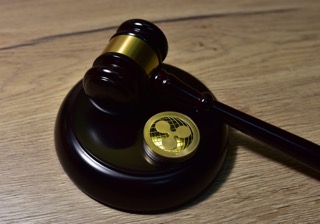Ripple’s CEO Brad Garlinghouse recently criticized former Securities and Exchange Commission (SEC) Chair Jay Clayton for his comments on the regulatory landscape and alleged abuse of power. Garlinghouse expressed shock that someone like Clayton, who had previously served as SEC Chair during the agency’s case against Ripple and its executives, would discuss abuse of power in an interview.
Garlinghouse’s anger stems from his belief that Clayton may have abused his power as SEC Chair during the case against Ripple. The case has been ongoing, and critics argue that the SEC’s claims against Ripple’s executives are baseless. This perspective suggests that Clayton may have used his position to pursue frivolous charges against Ripple and its executives, leading to accusations of abuse of power.
The “ETH Gate” saga also indicates potential abuse of power under Clayton’s leadership. This controversy involved the SEC’s action against Ripple and its executives, leading to speculation that the agency had ulterior motives for its actions. Legal expert Fred Rispoli even suggested that Clayton’s credibility could be questioned if he were called to testify in the SEC’s case against Ripple.
Furthermore, pro-XRP legal expert John Deaton joined Garlinghouse in condemning Jay Clayton. Deaton referred to Clayton as a “total fraud” in response to a clip from the DACOM Summit in 2021. In the clip, Clayton seemed to suggest that he wasn’t responsible for the SEC’s enforcement actions, as the decision to file a lawsuit was made by his staff. Deaton argued that Clayton had control over the SEC’s decisions and could have chosen not to pursue the case against Ripple if he wanted to.
Deaton also highlighted potential conflicts of interest involving Clayton. He criticized Clayton for not taking action despite the conflict of interest posed by his law firm representing Consensys, a company owned by Ethereum’s co-founder Joseph Lubin. Deaton believed that Clayton should have recused himself to avoid voting for enforcement action against his law firm’s biggest competitor.
These criticisms of Clayton’s actions and alleged abuse of power have heightened tensions between Ripple and the SEC. Ripple and its executives have been actively fighting the SEC’s charges, claiming that XRP should not be classified as a security. The outcome of this legal battle will have significant implications for the entire cryptocurrency industry.
It is essential to note that Ripple’s CEO Brad Garlinghouse and pro-XRP legal expert John Deaton have a vested interest in defending their case against the SEC. Their criticisms of Clayton may be influenced by their ongoing legal battle and desire to defend Ripple’s position. However, their statements reflect broader concerns about regulatory agencies’ power and potential conflicts of interest.
The controversy surrounding Ripple, the SEC, and Clayton highlights the complexities and challenges of regulating the rapidly evolving cryptocurrency industry. As the industry continues to grow and gain mainstream attention, regulatory agencies must strike a delicate balance between investor protection and fostering innovation. The outcome of the SEC’s case against Ripple will undoubtedly shape future regulatory approaches to cryptocurrencies and have significant implications for the industry as a whole.
In conclusion, Ripple’s CEO Brad Garlinghouse and pro-XRP legal expert John Deaton have criticized former SEC Chair Jay Clayton for his alleged abuse of power and conflicts of interest during the SEC’s case against Ripple. These criticisms highlight concerns about regulatory agencies’ actions and potential conflicts of interest within the cryptocurrency industry. The outcome of the SEC’s case against Ripple will have far-reaching implications and shape future regulatory approaches to cryptocurrencies.










